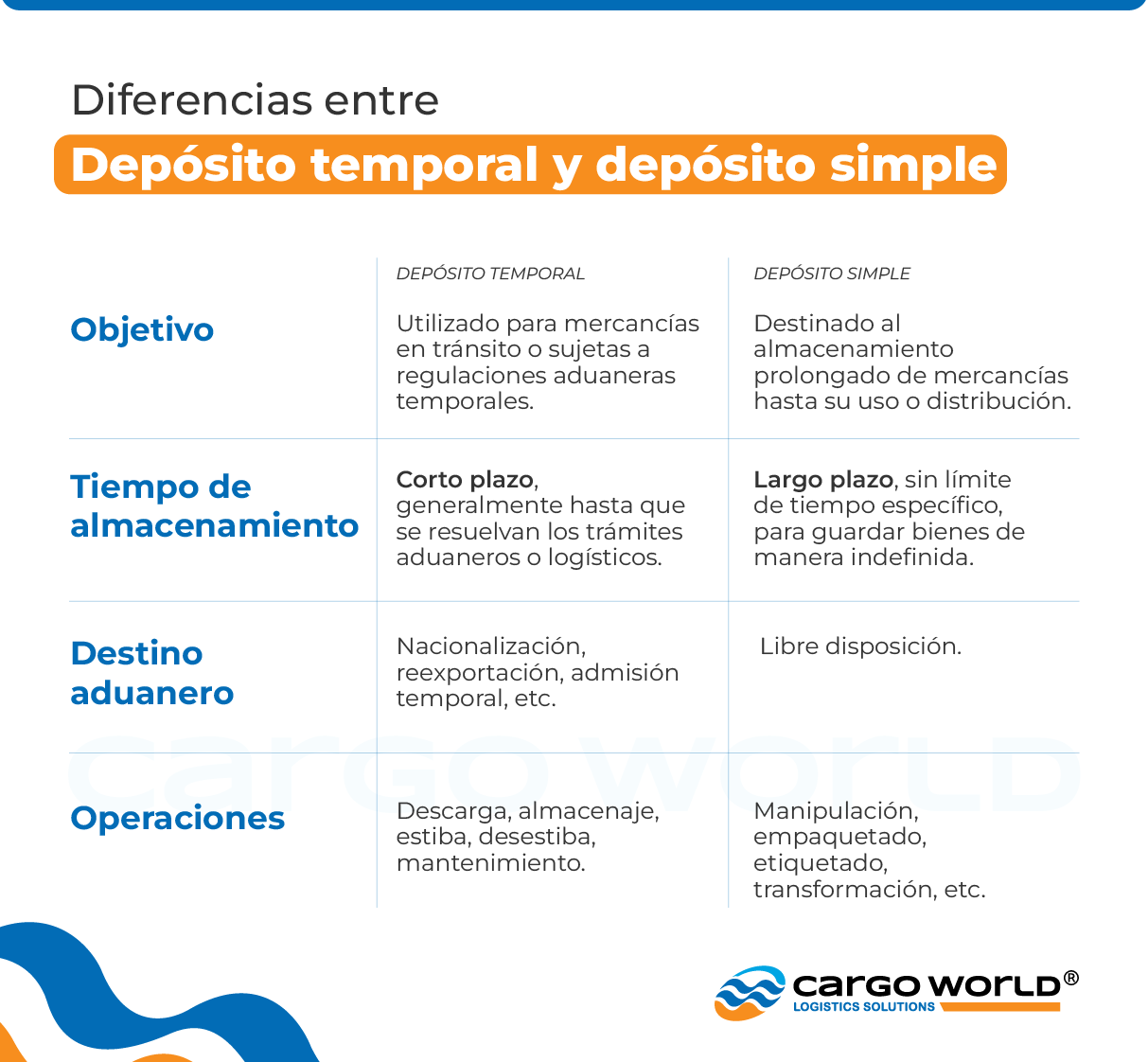
In the world of logistics and international trade, choosing the right type of deposit can make a difference in terms of costs, efficiency, and customs compliance. Two of the most common options that often raise doubts are the temporary deposit and the simple deposit. In this guide, we explain the main differences between both and which one may be more suitable for your needs.
A temporary deposit is a space designated for storing goods that have not yet been cleared by customs, meaning they are in transit or waiting to complete customs procedures. This type of storage has a time limit during which the goods can remain in the deposit while the customs clearance process is completed.
A simple deposit is an authorized customs warehouse where goods that have already been nationalized or do not require additional procedures can be stored. The goods here can be for import or export, and are generally not subject to a time limit, allowing for long-term storage.
Feature |
Temporary Deposit |
Simple Deposit |
|---|---|---|
Purpose |
Storage while awaiting customs clearance | Storage of nationalized goods or goods ready for export |
Storage Time |
Limited (varies according to local regulations) | No time limit, depends on the contract |
Goods |
Goods in transit or not cleared | Cleared goods or goods ready for export |
Customs Intervention |
Yes, while customs clearance is completed | No, goods have already been nationalized or cleared |
Costs |
Generally higher due to short term and customs intervention | Generally more economical for long-term storage |
Accessibility |
Limited until customs procedures are completed | More free access for distribution or export |
Advantages of Each Option
Which One to Choose?
The choice between temporary deposit and simple deposit depends on your logistics needs:
Conclusion
Understanding the differences between temporary deposit and simple deposit is key to optimizing your logistics. Consider the status of your goods, delivery times, and costs before making a decision. Good planning can save you time and money!